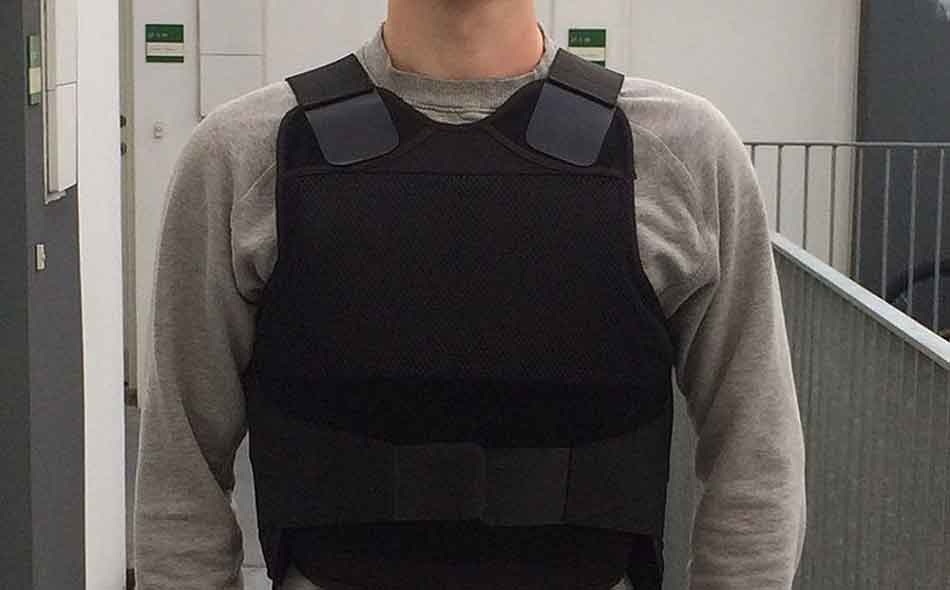
Is it Legal for Civilians to Purchase Body Armor?
On April 16, 2022 by Christopher HaskinsBody armor is a type of personal protective equipment (PPE) that is designed to protect the wearer from ballistic threats. Body armor can be made from a variety of materials, including Kevlar, ceramic, and steel.
Ballistic-resistant body armor is typically categorized into one of three grades: III-A, III, or IV. grade III-A armor is the lightest and least protective of the three grades, while grade IV armor is the heaviest and most protective.
Body armor is most commonly worn by law enforcement officers, members of the military, and security personnel. However, in recent years, there has been an increase in the number of civilians who are purchasing body armor for personal protection.
There are a few different factors to consider when purchasing body armor, including the level of protection you need, the weight and comfort of the armor, and your budget.
What is the legal landscape surrounding body armor?
The purchase and ownership of body armor is regulated by state law in many jurisdictions. Some states have laws that prohibit civilians from purchasing or owning body armor, while other states have no restrictions on who can buy and wear body armor.
In general, it is legal for civilians to purchase and wear body armor in the United States. There are a few exceptions to this rule, such as in Connecticut and Illinois, where it is illegal for civilians to purchase or wear bulletproof vests unless they have a valid permit.
However, there are some restrictions on the type of body armor that civilians can purchase. For example, it is illegal to purchase or possess “body armor piercing” ammunition in the United States.
What are the risks of wearing body armor?
While body armor can offer invaluable protection from ballistic threats, it is important to remember that no personal protective equipment is 100% effective. Body armor can also be bulky and uncomfortable to wear, which may impact your ability to move and react quickly in an emergency situation.
Additionally, wearing body armor may give you a false sense of security, which could lead you to take unnecessary risks that put you in danger.
If you decide to purchase body armor, it is important to choose a reputable dealer and make sure that you are properly trained in how to use and care for your armor. Wearing body armor is not a substitute for common sense or taking other precautions to protect yourself from danger.
How effective is body armor against gunfire and other projectiles?
Body armor is designed to protect the wearer from ballistic threats. Ballistic-resistant body armor is typically categorized into one of three grades: III-A, III, or IV. grade III-A armor is the lightest and least protective of the three grades, while grade IV armor is the heaviest and most protective.
Body armor is most effective when used in combination with other personal protective equipment, such as a helmet and bulletproof vest. Wearing body armor alone will not protect you from all ballistic threats. For example, body armor will not protect you from puncture wounds or blunt force trauma. Additionally, body armor can be bulky and uncomfortable to wear, which may impact your ability to move and react quickly in an emergency situation.
How much does body armor cost, and where can it be purchased?
The cost of body armor varies depending on the type of armor, the level of protection it offers, and the brand. Ballistic-resistant body armor can cost anywhere from $100 to $1,000 or more.
There are a few different factors to consider when purchasing body armor, including the level of protection you need, the weight and comfort of the armor, and your budget.
Body armor can be purchased from a variety of retailers, both online and offline. However, it is important to choose a reputable dealer that sells high-quality products.
Some states have laws that prohibit civilians from purchasing or owning body armor, while other states have no restrictions on who can buy and wear body armor. In general, it is legal for civilians to purchase and wear body armor in the United States. However, there are some restrictions on the type of body armor that civilians can purchase. For example, it is illegal to purchase or possess “body armor piercing” ammunition in the United States.
If you decide to purchase body armor, it is important to choose a reputable dealer and make sure that you are properly trained in how to use and care for your armor. Wearing body armor is not a substitute for common sense or taking other precautions to protect yourself from danger.
Archives
Calendar
| M | T | W | T | F | S | S |
|---|---|---|---|---|---|---|
| 1 | 2 | 3 | 4 | |||
| 5 | 6 | 7 | 8 | 9 | 10 | 11 |
| 12 | 13 | 14 | 15 | 16 | 17 | 18 |
| 19 | 20 | 21 | 22 | 23 | 24 | 25 |
| 26 | 27 | 28 | 29 | 30 | 31 | |